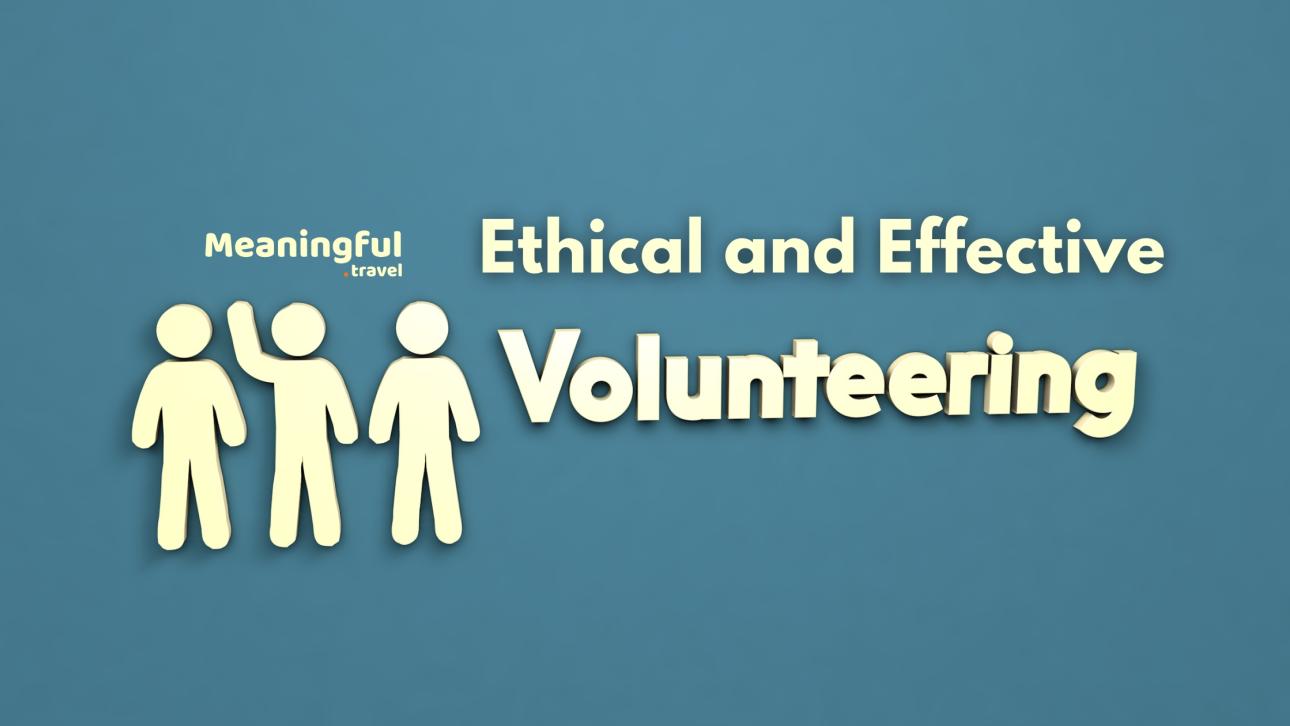Volunteering abroad is often seen as a life-changing opportunity, where individuals can make a positive impact while exploring a new culture. From building schools in rural areas to working with conservation projects, the idea of using your time and skills for good is undeniably appealing. However, it's worth considering whether your well-intentioned efforts could also have unintended consequences, sometimes bordering on a cultural faux pas. Let's dive into both sides of this hotly debated topic to help you make an informed decision.
The Appeal of Volunteering Abroad
For many, volunteering abroad is more than just a vacation—it's a way to connect deeply with communities, gain new perspectives, and create lasting memories. Here are some reasons why people find this experience so enticing:
- Personal Growth: Traveling to a new country and working outside your comfort zone can lead to significant personal development. You learn new skills, become more adaptable, and gain a deeper appreciation for diverse cultures.
- Cultural Immersion: Volunteering offers a chance to live among locals and experience daily life, which is far more enriching than just passing through as a tourist.
- Making a Difference: Knowing that your efforts are contributing to a cause greater than yourself is deeply rewarding. Whether it's teaching English or planting trees, every little bit helps.
The Reality: Are You Actually Helping?
While the idea of making a difference is motivating, the reality is more complex. Critics argue that some volunteer programs do more harm than good, often due to poor planning, a lack of sustainability, or a disregard for cultural norms. Here’s what you need to consider:
- Short-Term Volunteering Projects
Many volunteer opportunities are structured as short-term projects, which may not always have the desired long-term impact. For example, spending two weeks teaching English to children may not be enough to create a lasting educational foundation. Moreover, the constant rotation of volunteers can be disruptive, particularly for projects requiring stability.
- Unintended Consequences on Local Communities
Sometimes, well-meaning volunteers can unintentionally undermine the local economy or social structure. For example, if a community becomes reliant on foreign volunteers for labor or expertise, it could stifle local job creation or diminish the value of local skills.
Ethical Considerations in Volunteering Abroad
Volunteering in another country is more than just lending a hand; it requires a sense of cultural sensitivity and ethical responsibility. Here’s how to approach your experience thoughtfully:
- Respect Local Customs: Every culture has its traditions and practices. Being mindful of local norms not only shows respect but also helps build genuine connections.
- Understand the Community’s Needs: Before joining a program, research whether it aligns with the actual needs of the community. Some projects may seem beneficial from an outsider's perspective but lack relevance locally.
- Avoid "White Savior" Complex: This term refers to the notion that outsiders, often from privileged backgrounds, feel the need to “save” people in less developed regions. It’s crucial to approach volunteering with a mindset of partnership and collaboration, rather than superiority.
The Dangers of "Voluntourism"
The term “voluntourism” has been used to describe programs that focus more on the experience of the volunteer rather than the needs of the community. These programs often prioritize the enjoyment and convenience of tourists, sometimes at the expense of genuinely beneficial initiatives.
- Profit-Driven Organizations: Some companies capitalize on the good intentions of volunteers, charging exorbitant fees while providing little value to the local communities. These programs can divert funds away from meaningful projects and into the pockets of organizers.
- Exploitation of Vulnerable Populations: In some cases, communities or children are put on display to attract more volunteers, essentially turning humanitarian work into a tourist attraction.
How to Volunteer Ethically and Effectively
To ensure your time and efforts are meaningful, follow these guidelines:
- Choose Reputable Organizations
Do thorough research to find organizations with a proven track record of ethical practices and sustainability. Reputable groups are transparent about their funding, goals, and the impact of their projects.
- Consider Your Skillset
Matching your skills to the needs of a program can make a significant difference. If you have medical training, look for healthcare projects. If you're skilled in construction, perhaps a building project is best. This ensures that your contributions are valuable and impactful.
- Stay Long Enough to Make an Impact
If possible, opt for programs that allow you to commit enough time to make a genuine difference. Short stints may be fun and memorable, but they often lack the impact of a well-planned, longer-term effort.
Stories of Success: When Volunteering Abroad Works
Despite the potential pitfalls, there are countless examples of volunteering programs that have made a significant difference:
- Educational Programs: Volunteers who commit to teaching for an extended period can provide consistent education and help train local teachers, creating a lasting impact.
- Conservation Efforts: Environmental volunteer programs, such as wildlife conservation or reforestation projects, often see success when they involve collaboration with local experts and authorities.
Signs of a Well-Run Volunteer Program
If you’re unsure whether a program is the right fit, look for these hallmarks of success:
- Community Involvement: The program should be community-driven, with locals having a say in what projects are most needed.
- Transparency: A good organization will be clear about how funds are used and what volunteers can expect.
- Sustainability: The initiative should aim for long-term impact, not just a temporary fix.
How to Prepare for a Volunteer Trip
Preparation is key to ensuring your volunteering experience is both safe and productive:
- Learn the Language: Even basic phrases can go a long way in showing respect and making connections.
- Understand Cultural Sensitivities: Research the country’s history, culture, and social norms before you arrive.
- Get the Right Training: Some programs require training, whether it’s first aid for healthcare volunteers or language courses for teaching.
Conclusion: A Balancing Act Between Impact and Experience
Volunteering abroad can indeed be a life-changing adventure, offering personal fulfillment and the chance to contribute to global good. However, without careful planning and consideration, it can also become a cultural faux pas that unintentionally harms the very communities you intend to help. The key lies in choosing ethical, impactful programs and approaching the experience with humility, respect, and a genuine desire to learn and collaborate.
Ultimately, the question isn't whether volunteering abroad is good or bad, but rather how it’s done. When approached thoughtfully, volunteering can be a powerful force for positive change—for both the communities you serve and yourself.






